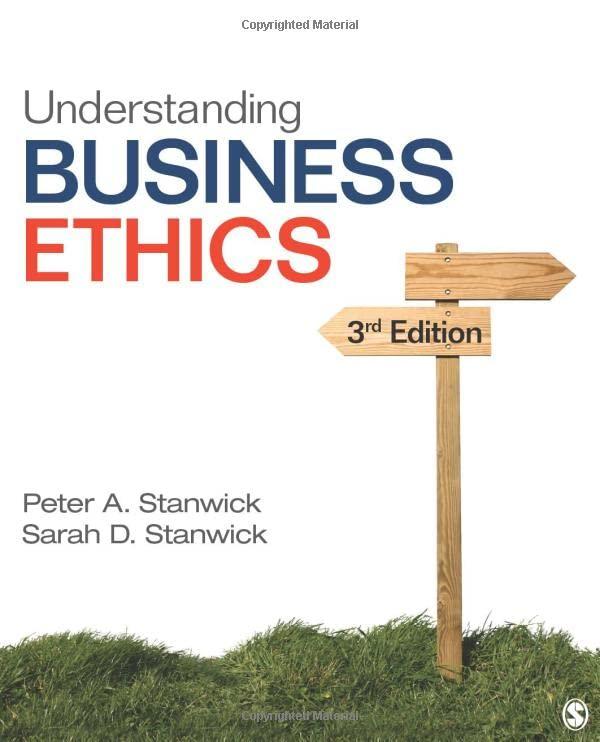At the peak of the financial crisis in September 2008, one of the oldest and most established
Question:
At the peak of the financial crisis in September 2008, one of the oldest and most established brokerage firms in the world, Lehman Brothers, declared bankruptcy. The collapse of this well-established financial institution demonstrated how serious the crisis was and how the financial service industry had lost touch with the delicate balance of risk and return. For many at Lehman Brothers, it was not just the loss of a job but also the loss of one’s identity. Although Lehman brokers admitted they were partially to blame for the collapse, they also pointed out that there were many guilty parties, including government regulators, senior executives at Lehman Brothers, competitors, and their colleagues who also had faith in computer algorithms. These algorithms had become an important part of the trading “decision making” at all the Wall Street brokerage firms. Brokerage firms, such as Lehman Brothers, would bundle, trade, or sell “packages” for mortgages, auto loans, and other types of financial products. These packages were then sold to investors based on the “calculated” risk from the algorithms. Lehman Brothers did it because all its competitors did it, and the competitors did it because the investors wanted to invest in those packages that could yield “premium” returns. Lehman Brothers managers knew as early 2007 that there were problems with its risk models. The brokers saw that the models displayed warnings that started showing higher levels of delinquencies and defaults. Colleagues started to ask each other about the loan quality of these packages. However, the warning signs were discounted or ignored because Lehman Brothers was ranked as the top loan originator on Wall Street. In addition, senior executives wanted rapid growth from the company, and they had targeted these investors as a viable way to grow quickly. As a result, there was no incentive to disclose these warnings, and employees were considered troublemakers if they raised questions related to these loans, stopping their climb up the corporate ladder.
Questions
1. What role should government regulators have in the brokerage industry? Why do you think the regulators were not more active before the 2008 financial crisis?
2. What would you do if you knew these “packages” were going to fail in the future?
3. Would you be a whistle-blower if you warned investors about the danger of these packages? If you did blow the whistle, who would you contact?
Step by Step Answer:

Understanding Business Ethics
ISBN: 9781506303239
3rd Edition
Authors: Peter A. Stanwick, Sarah D. Stanwick





